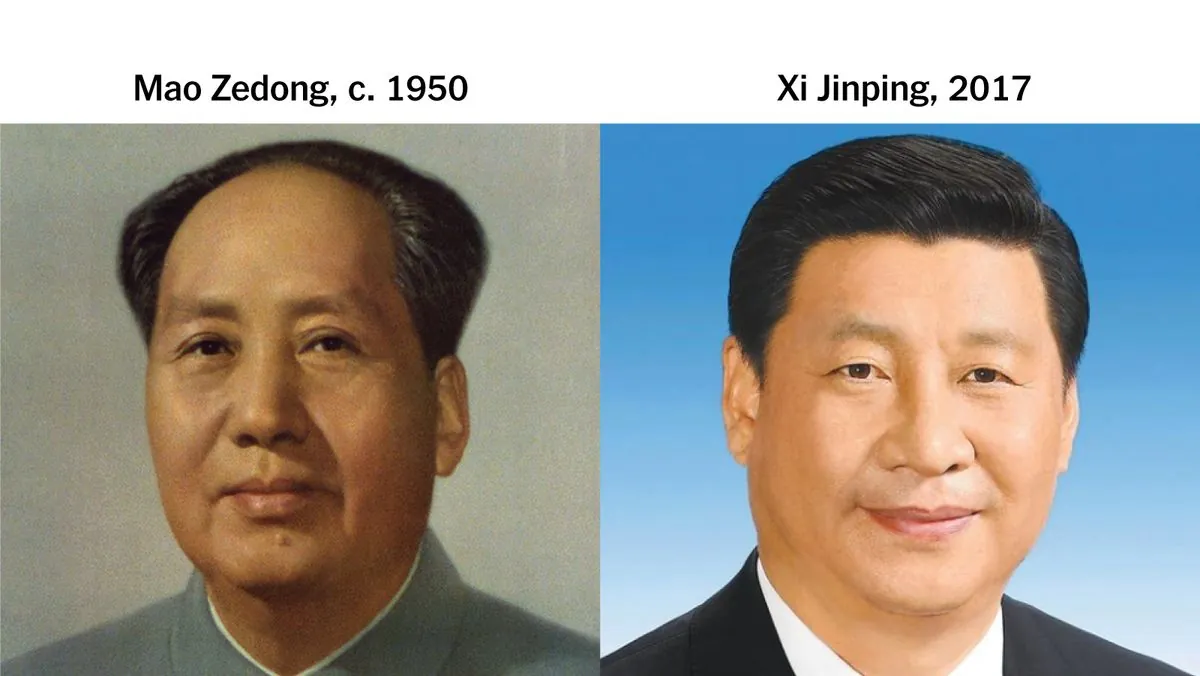China's commemoration of Deng Xiaoping's 120th birth anniversary on August 22, 2024, highlights a stark contrast between his economic-focused approach and Xi Jinping's power-centric strategy. While both leaders share the vision of a powerful China, their methods diverge significantly.
Deng Xiaoping, born in 1904, initiated the "Reform and Opening Up" policy in 1978, transforming China from an impoverished nation to an economic powerhouse. His pragmatic approach, encapsulated in the phrase "It doesn't matter whether a cat is black or white, as long as it catches mice," prioritized economic development over ideological purity.
In contrast, Xi Jinping, who assumed leadership in 2012, has shifted focus towards military strength and global competition. This change is evident in China's defense spending, making it the world's second-largest military spender after the United States. However, this emphasis on power projection comes at a cost to economic development.
China's gross national income (GNI) per capita in 2023 stood at $13,400, merely one-sixth of the United States' $80,300. This places China on par with Mexico and Argentina economically, despite its global ambitions. The disparity between China's military aspirations and economic reality poses a significant challenge for Beijing.
The power-wealth dilemma in international relations is particularly relevant to China's current situation. While military power is crucial for security, excessive focus on it can hinder long-term prosperity. China faces two main trade-offs:
The guns-butter-growth trade-off: Although China's defense spending remains relatively low at 2% of GDP, it impacts available resources for social welfare and economic growth.
The guns-butter-openness trade-off: Xi's pursuit of superpower competition has led to reduced economic openness, hampering China's future growth prospects.
China's economic growth has been decelerating rapidly. The International Monetary Fund reports average growth rates falling from 8.6% (2010-2014) to 6.6% (2015-2019), and further to 4.6% (2020-2024). Projections suggest a decline to 3.3% by 2029. Unlike Japan and South Korea, which achieved high-income status before growth slowed, China faces this deceleration while still a middle-income country.
Xi's policies have exacerbated structural imbalances in China's economy. The country's investment-to-GDP ratio has remained above 40% for two decades, significantly higher than G-7 countries' average of 23% in 2023. Xi's emphasis on state-driven investments and national security as the foundation for modernization may further postpone necessary economic rebalancing.
Alternatively, Xi could have chosen a less confrontational path. By focusing on defensive rather than offensive military capabilities and adopting a more measured foreign policy approach, China could have mitigated international concerns about its rise.
"China will never seek hegemony, expansion, or sphere of influence."
Despite such statements, Xi's actions, including the Belt and Road Initiative and "wolf warrior diplomacy," have heightened global tensions. China's support for Russia following the Ukraine invasion and aggressive posturing in the South China Sea have particularly damaged relations with Western nations.
As the United States and its allies implement derisking policies, China faces the challenge of navigating slowing growth, an aging population, and the transition to high-end manufacturing with diminishing global economic integration. This situation starkly contrasts with Deng's open-door policy and underscores the costs of prioritizing power over economic development too early in China's national strategy.
